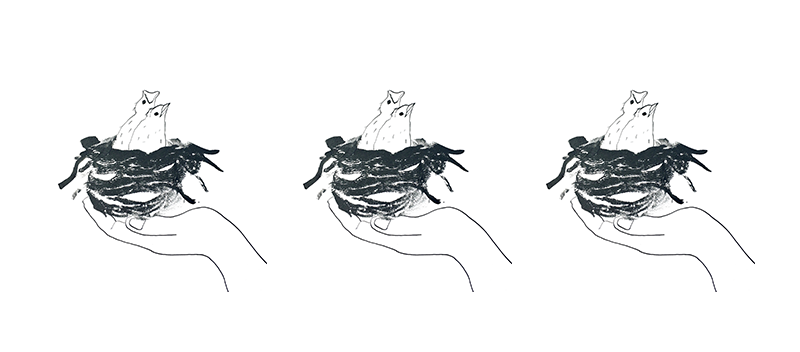Your intentions might be good, but if chicks fall out of a nest you mustn’t try to put them back. That’s what you were always told as a kid. Because if you touch them, they will smell of humans and the parent birds will reject them. Well-meant advice, but it’s nonsense. ‘Birds can smell,’ says Marc Naguib, professor of Behavioural Ecology. ‘But with a few exceptions — such as the nearly blind kiwi which hunts for food at night and depends on its nose — the sense of smell isn’t nearly as well developed in birds as the sense of hearing, for instance. A lot of studies have been done around the world in which chicks are taken from the nest to ring them and take blood samples. They’re put back and there’s never any problem. So the human scent isn’t that important and the parents won’t reject their young.’
If you want to put a chick back, check that the nest isn’t already empty
Marc Naguib, professor of Behavioural Ecology
However, it is not a good idea to move young birds. ‘When the chicks leave the nest, they still need to practise flying,’ says Naguib. ‘Sometimes they end up on the ground. The parents are often nearby and still feeding their young but they will only approach once you are out of sight again. So keep watch from a distance. If you still don’t see the parents, then you can put the young ones back. Check first whether there are other chicks in the nest: if it’s empty, the parents are unlikely to come back because the offspring have flown the nest.’
If you think the parents are gone, you can phone the animal ambulance or take the young bird to a bird shelter. Naguib: ‘It’s difficult to raise a chick by hand because they often need very specific food.’ And death is a fact of life, however sad. There are good reasons why blue tits lay an average of ten eggs: eight of the chicks die before reaching adulthood. Naguib advises against opening nest boxes to look at the chicks. ‘That can cause stress and prompt the parents to leave the nest, or else the chicks fly off too soon and don’t survive.’
We are bombarded with masses of information every day, some of it contradictory. What are the facts? In this feature, a scientist answers your burning questions. Every question makes you a little wiser. Do you dare to ask yours? Email redactie@resource.nl.

 Illustration Marly Hendricks
Illustration Marly Hendricks